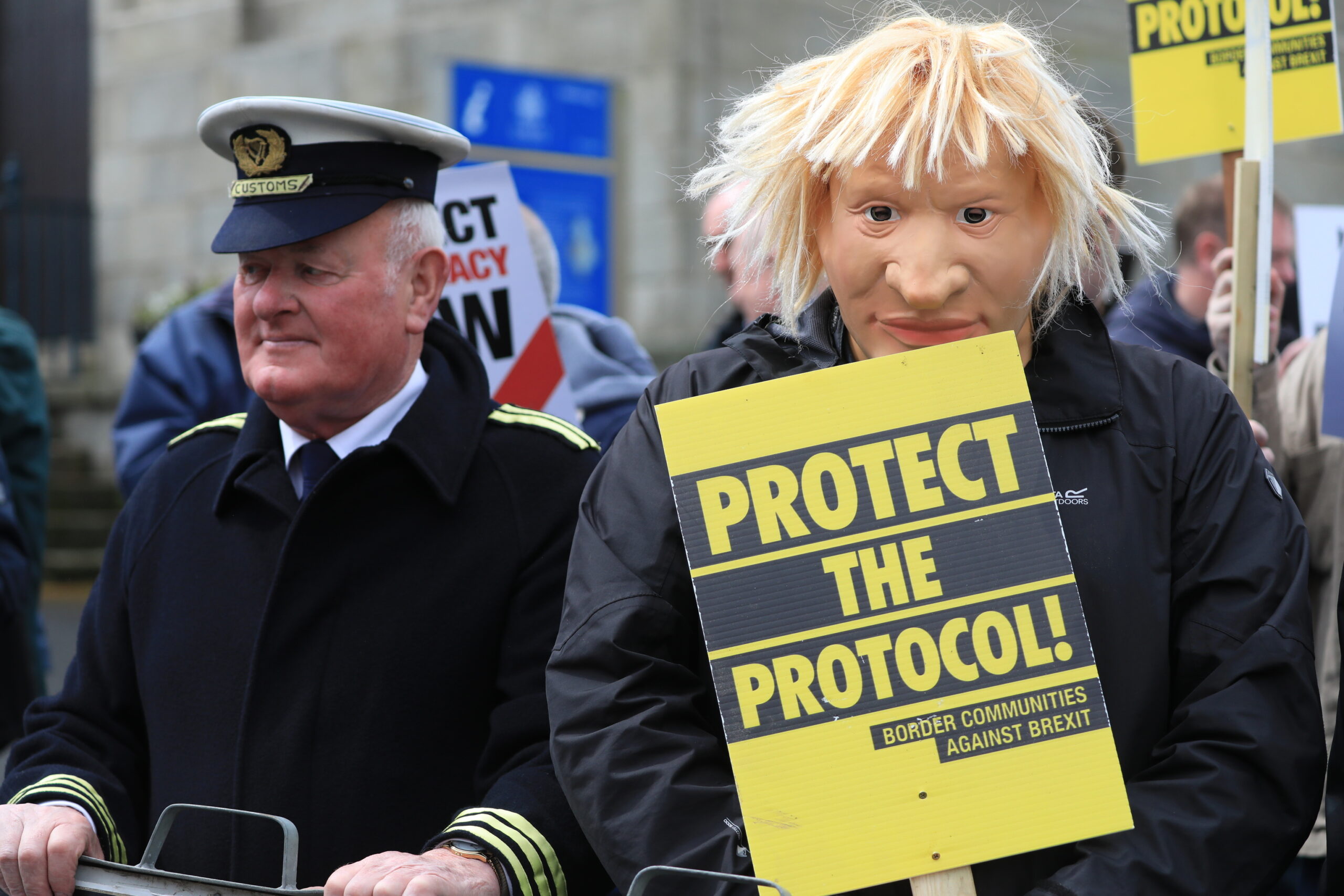The “premier” Boris Johnson achieved initial support from Parliament for the unilateral “rewriting” of the Ireland Protocol, the most controversial point of the Brexit agreement. By 295 votes in favor and 221 against, and despite the rebellion of dozens of “Tory” deputies, the House of Commons gave impetus to the controversial law, which will be sent to the House of Lords, where it could be amended .
Since the G-7 summit, three weeks after facing the motion of no confidence supported by 41% of his deputies, Johnson has assured that the only thing he intends is to “raise unnecessary barriers to trade between Great Britain and Northern Ireland ” while guaranteeing “the stability and protection of the Peace Agreement”.
The Protocol law, which aims to streamline customs processes, introduce “double regulation”, change the tax regime and leave the EU Court of Justice out of possible disputes, has faced severe resistance on Monday within the Party Conservative, including former ‘premier’ Theresa May.
May has warned that the law is a violation of international obligations and has announced her vote against: “I cannot support legislation that diminishes the role of the United Kingdom in the eyes of the world.” Conservative MP Simon Hoare, head of the Northern Ireland parliamentary committee, has expressed himself in similar terms: “Respect for the rule of law is something that runs through the veins of the ‘Tories’, and it seems extraordinary to me that we have to remember this to our own government”.
Boris Johnson has hoped, however, to overcome resistance within his own party and has predicted that the new law will enter into force before the end of the year, despite the warnings issued by the European Union, which has decided to take the United Kingdom to the courts. The EU ambassador in London, Joao Vale de Ameida, has branded the text voted in Parliament as “illegal” and “far from reality”. The vice president of the European Commission, Maros Sercovic, who had already threatened a possible trade war, has anticipated that there will be “greater retaliation” if the Protocol law finally sees the light.
“We cannot trivialize the fact of breaking an international agreement between the United Kingdom and the EU,” warned, for his part, the Irish Prime Minister, Micheál Martin. “I am concerned about this trend towards unilateralism that the United Kingdom is showing: from the Protocol to the application of the decisions of the European Court of Human Rights in Strasbourg.”
The British Foreign Secretary, Liz Truss, has defended the controversial Protocol law in the House of Commons, claiming that “as a patriot and as a democrat, our number one priority is to protect peace and stability.” “The institutions in Northern Ireland are not working, so the British government has had to intervene,” said Truss, referring to the refusal of the Democratic Unionist Party (DUP) to participate in a “power-sharing” government with Sinn Féin. .
The leader of the DUP, Jeffrey Donaldson, has assured that his party “will consider” his incorporation into the Government of Northern Ireland if the Protocol law is finally approved. Donaldson has defended the law sponsored by Boris Johnson as “a first step to create a framework of stability and restore territorial integrity to the United Kingdom.”
The majority of the parliamentary forces in Northern Ireland -Sinn Féin, the Alliance Party and the Labor and Social Democratic Party- have, however, made common cause against the Protocol law and have warned the British ‘premier’ of the negative effects that their unilateral actions may have on Ulster.
The Labor Party’s foreign spokesman, David Lammy, has accused, for his part, the Government of Boris Johnson of carrying out “a corrosive and hypocritical foreign policy”, recalling its “international obligations” to countries such as Bolivia, Sri Lanka , Nicaragua, Myanmar, South Sudan, Eritrea and Ethiopia and unilaterally breaking, at the same time, their own commitments to the international community.
Conforms to The Trust Project criteria
















